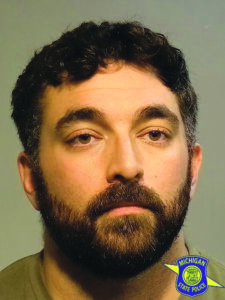Mental Health Awareness Month
Kids can experience mental health problems, too.

HOUGHTON — Mental health problems are not to limited adults. Children, teenagers, and young adults can have mental health problems, too. In fact, says the Substance Abuse and Mental Health Services Administration (SAMHSA), three out of four peoople with mental health problems showed signs before they were 24-years-old.
The National Alliance on Mental Illness (NAMI) reports one in six U.S. youth aged 6-17 experience a mental health disorder each year, and half of all mental health conditions begin by age 14.
The CDC reports that in 2022, anxiety problems, behavior disorders, and depression were the most commonly diagnosed mental disorders in children.
However, such behaviors may also indicate a more serious problem in some children.
Distinguishing between challenging behaviors and emotions that are a part of normal development and those that may be cause for concern can be difficult, NIH says. Consider seeking help if the child’s behavior or emotions last for weeks or longer, cause distress for the child or the family, or interfere with the child’s functioning at school, at home, or with friends.
The National Institute of Mental Health (NIH) says all children are sad, anxious, irritable, or aggressive at times, and many find it occasionally challenging to sit still, pay attention, or interact with others. In most cases, these are just typical developmental phases.
In some cases, parents may reach out to a professional for help or assessment.
NIH says an evaluation by a mental health professional can help parents understand and clarify the child’s emotions, behavior, and current situation. Based on this information, the mental health professional can parents decide if the child would benefit from an intervention and what intervention might work best.
Zachary Meston, pediatric therapist at Unité Mental Health and Wellness in Houghton, said there are signs that may suggest a child is experiencing problems.
“Some big indicators for us, especially that happen during the school year,” Meston said, “is if we start to see issues with things like school, sleep, if we notice that kids just might not be enjoying the things that they used to as much, so those are some good indicators.”
SAMHSHA suggests children talk to a parent, guardian, or a trusted adult if they experience problems. While allforkids.org states pediatricians and healthcare workers will ask young patients questions to assess risk, parents will be the best people to identify any problems your child might face.
Meston agrees.”I think of parents as kind of the experts on their own kids,” Meston said. “So, sometimes parents just have a sense that something might not be going well, and I also want to allow parents to be parents and sometimes it’s helpful to have parents introduce kids to someone else that they talk to, a space where they can work some things out. Sometimes, I work with the parent and the child together on some of those hard issues,” adding, “In pediatric mental health, we’re really looking to establish long-term supports that can help a child develop the skills they can apply for the rest of their lives.”
Meston said the goal of pediatric mental health goes hand-in-hand with thinking preventative. “We’re looking to help parents and kids feel confident in getting through the challenges of what they’re facing in life now,” he said, “to help themselves succeed so they can succeed later in life and know how to utilize the supports for later in life challenges.”





